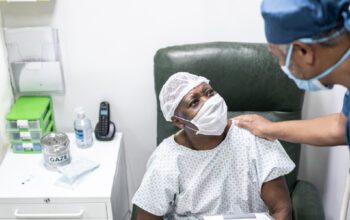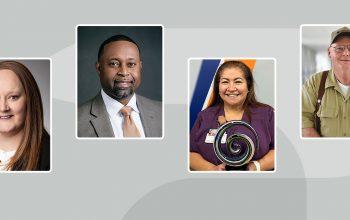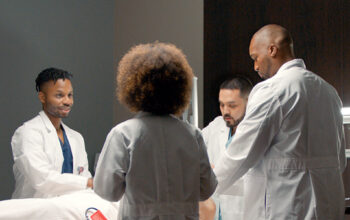HCA Healthcare nurses are truly the difference makers when it comes to providing patient-centered care to those needing it most. Several of our nurses sat down to reflect on what nursing has meant to them, how the year 2020 has shaped them and why they are dedicated to nursing for the long haul.
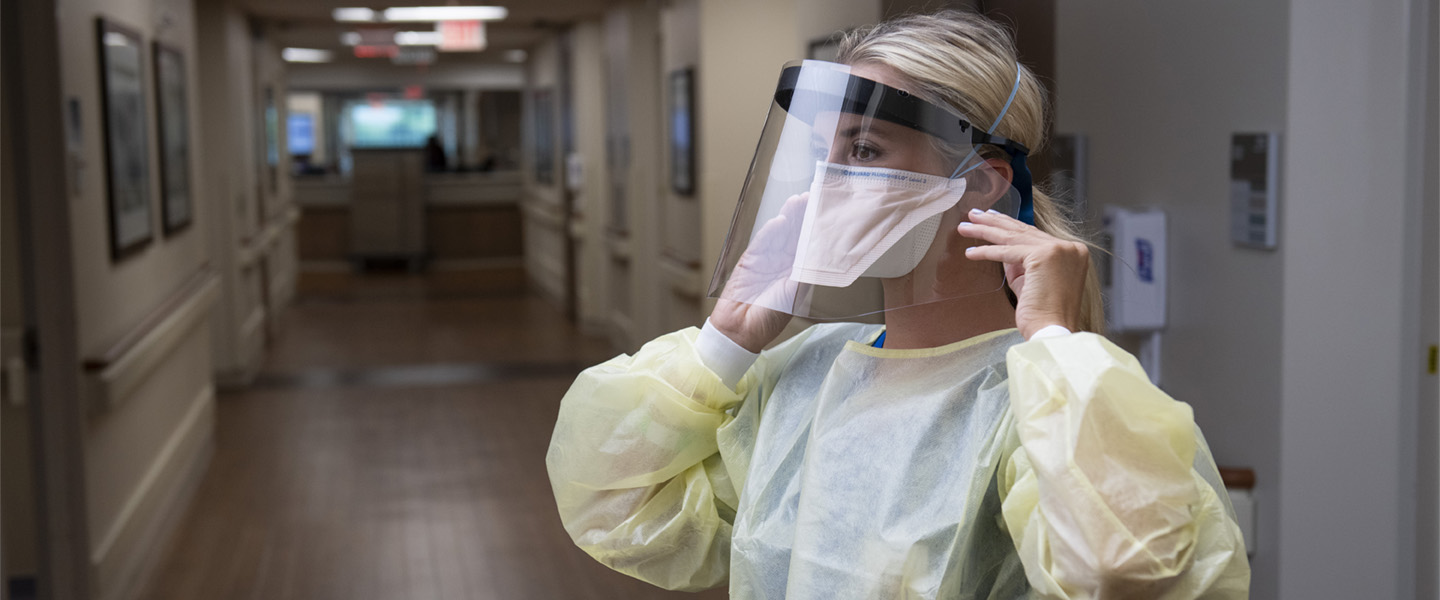
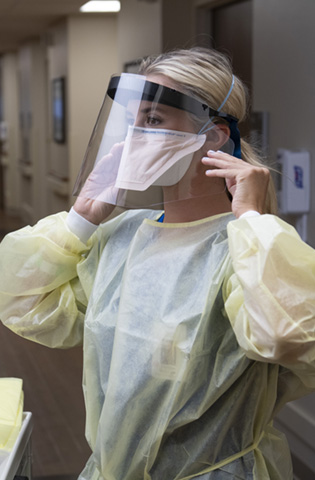
It was a year when the whole entire world got the opportunity to see what nurses do and how important nurses are.— Ernesto Carnota, associate critical care director at JFK Medical Center in West Palm Beach, Fla.
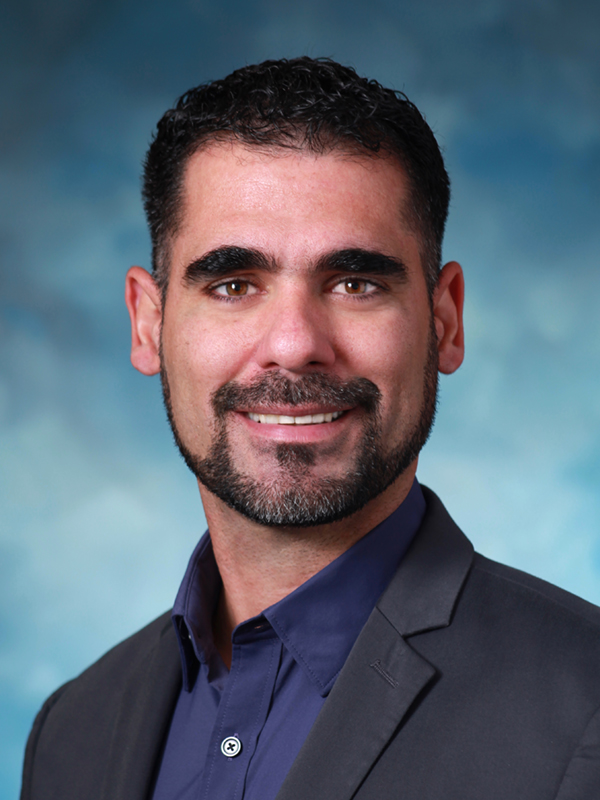
Ernesto Carnota
Associate Critical Care Director
JFK Medical Center, West Palm Beach, Florida
The way that Ernesto Carnota sees it, nursing is a powerful means to serve.
Ernesto, who is an associate critical care director at JFK Medical Center in West Palm Beach, Florida, decided to become a nurse after his mother was hospitalized for nearly a month.
“I realized that the care team spent the most time with patients. I got the idea that I would love to be at the patient’s bedside on their worst days and in their most vulnerable situations,” he says. “It’s a career of service — serving people and helping them. That’s what I’ve always been drawn to. Nurses have the opportunity to be present during the gift of life (when babies are born), and we also have the opportunity to be there for the last minutes of a person’s life. We’re the only profession that can cover the entire lifespan.”
Ernesto and other HCA Healthcare nurses recall 2020 as a year that challenged them in ways they never could have predicted or imagined. Yet they navigated the unknown in the face of many fears. They found strength through the support of their fellow HCA Healthcare colleagues, and they adapted. Ernesto says it was a year that brought new attention to their profession.
“It was a year when the whole entire world got the opportunity to see what nurses do and how important nurses are,” he says. “As a profession, we were challenged in every single aspect where we could be challenged. The amount of resilience and compassion that I experienced from my nursing colleagues was something that I never thought I would experience. We demonstrated that we were strong enough and resilient enough to come out of that challenge. Even though 2020 was a horrific year for everybody, I think it made nurses stronger.”
Patient- and Colleague-Centered Care
The days early in the pandemic still trouble Ernesto. After the ICU where Ernesto worked saw several patients lose their battle with the COVID-19 virus, his partner asked about his day over breakfast the next morning. Ernesto could only respond with tears.
“There was an incredible amount of feeling helpless,” Ernesto recalls. “[But] we couldn’t stop. We had to keep going.”
What helped them, Ernesto says, was the support they received from HCA Healthcare leaders. He notes the benefits put in place, such as pandemic pay for nurses unable to work because of COVID-19 and employee assistance programs to meet physical and emotional needs. They also led by example. He witnessed leaders at JFK Medical Center arriving at 5:30 a.m. and remaining until nearly midnight. CEOs put on scrubs and worked alongside nurses, he says.
There were check-ins throughout the day, he adds, to determine if nurses needed personal protective equipment, food or other support, and this care was extended to the families of colleagues and patients.
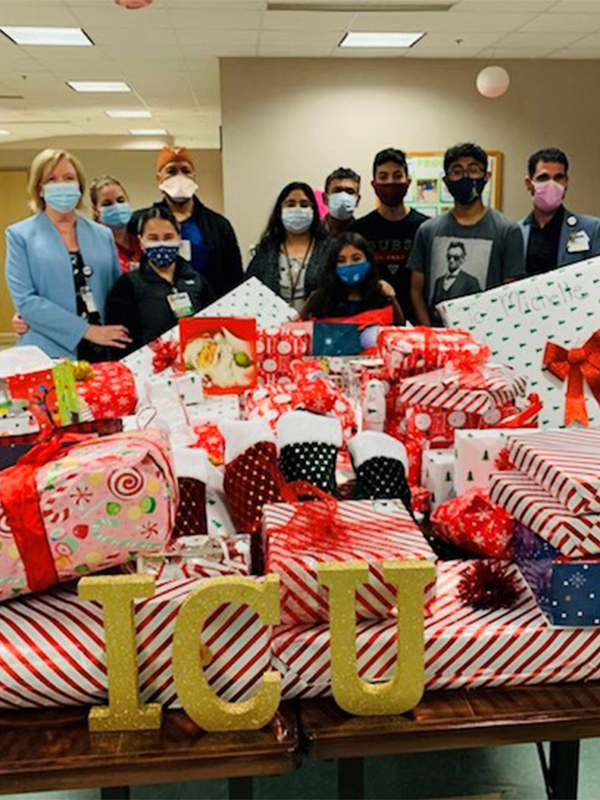
When a fellow ICU colleague passed away, the staff delivered Christmas gifts to her four children, including a laptop for her college-bound son.
“We truly do care for each other as a family,” Ernesto says.
When a teen from South America died, the boy’s father expressed a wish to bury him in their native country. Again, the ICU nurses raised enough money so that his body could be transported and buried next to his mother.
“I couldn’t be more proud of being a part of this profession and a part of this amazing team of HCA Healthcare nurses,” Ernesto says.
Our company has worked really hard to allow us to have the resources that we need to help with mental health or to help us stay intact.— Donna Villavasso, labor and delivery nurse leader at HCA Houston Healthcare Northwest in Houston, Texas
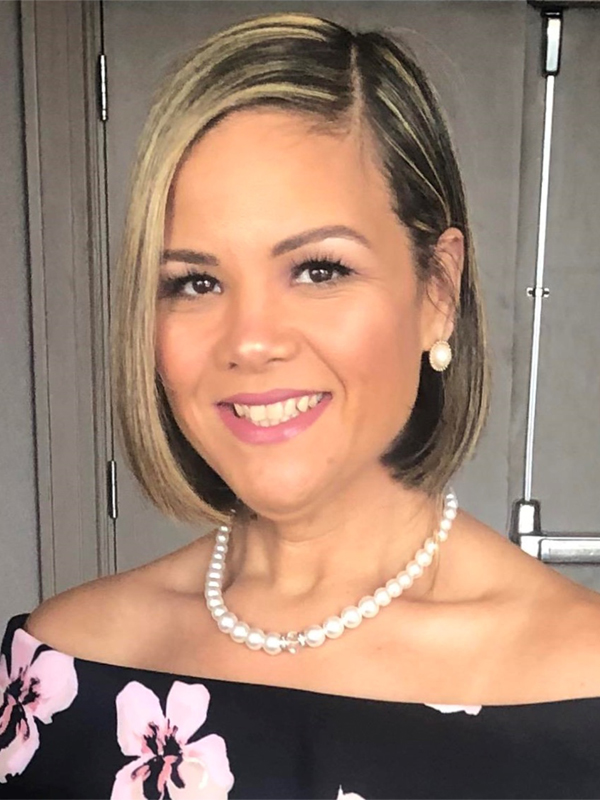
Donna Villavasso
Labor and Delivery Nurse Leader
HCA Houston Healthcare Northwest, Houston, Texas
Serenity Room Offers Comfort
Donna Villavasso, sometimes called “Momma Donna,” is known for caring and for comforting others. But Donna, a labor and delivery nurse leader at HCA Houston Healthcare Northwest in Houston, Texas, needed comforting herself many times last year.
One of her teenage daughters needed major surgery around the beginning of the pandemic. Around the same time, her mother was diagnosed with cancer and underwent emergency surgery. Just before her mother’s surgery, Donna’s father, who was hospitalized elsewhere, passed away. All of these personal trials were added to the stress and uncertainty of caring at the bedside during unprecedented circumstances.
“It was a very emotional time for me,” recalls the 18-year healthcare veteran.
Realizing that the pandemic was taking a toll on its staff, hospital leaders at her facility engaged the Employee Advisory Group (EAG) in creating a Serenity Room for colleagues needing respite during a shift. Donna, who is also a member of the EAG, says it was a peaceful spot for her to regroup.
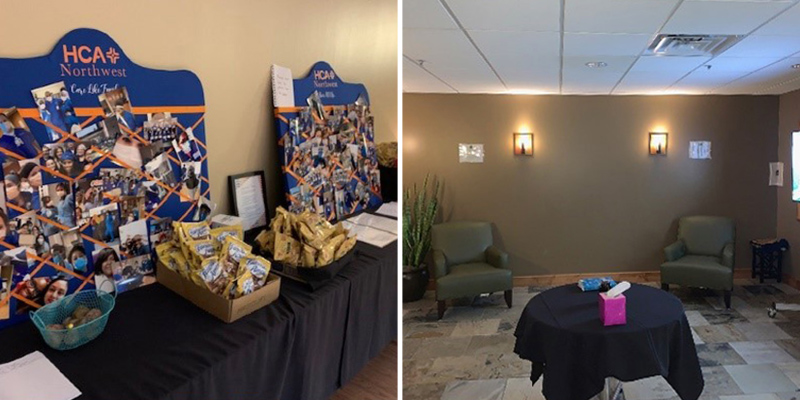
The quiet room offers a space for people to pray, meditate, write in a journal or simply sit in solitude. Snacks and aromatherapy are also offered, creating a space for both minds and bodies to rest.
“Our company has worked really hard to allow us to have the resources that we need to help with mental health or to help us stay intact,” Donna says. “I think it’s a true need for us as healthcare professionals.”
She says they can see that the Serenity Room is making a difference.
“To read the comments in our journals — and to see the positive reinforcement and appreciation for the space and for each other — is making the difference,” she says. “Mental health is such a profound need.”
Despite experiencing a year of deep loss, Donna’s outlook for 2021 is positive: “We have to go through the humps and bumps and hurdles of the new year. Tomorrow is a new day to do better.”
Our doctors and nurses are what helped me cope with this time. We were a good team before COVID-19, but during COVID-19 we really leaned on each other physically and emotionally to get through our days.— Jordan Grohskopf, RN, BSN, CCRN, at Sky Ridge Medical Center in Lone Tree, Colo.
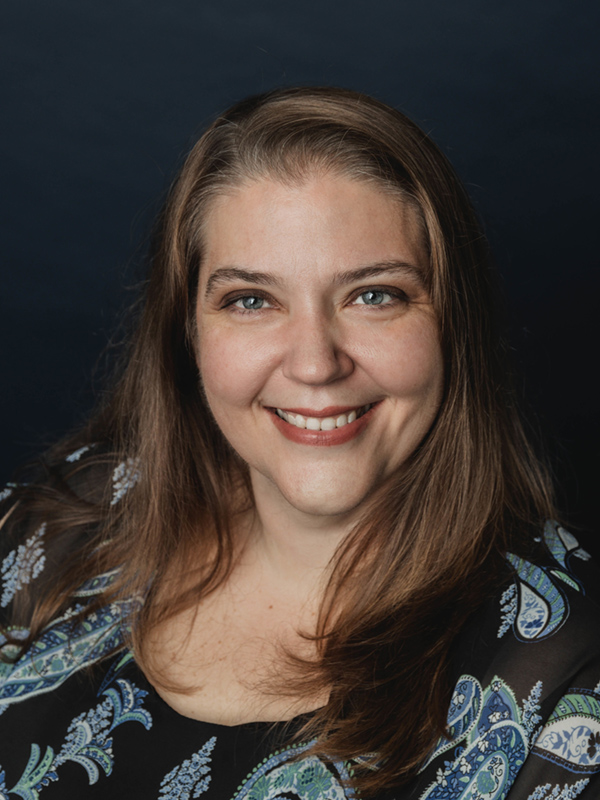
Melissa White, RN, MSN, CNM
Women’s Care Center
HCA Houston Healthcare Southeast, Pasadena, Texas
Family Impact
Melissa White, RN, MSN, CNM, at the Women’s Care Center, a department of HCA Houston Healthcare Southeast in Pasadena, Texas, remembers how her leadership team communicated clearly and often throughout the pandemic last year. This was especially important while their facility was undergoing construction. Regular updates enabled the staff to focus on caring for patients rather than trying to figure out how to enter and exit various areas.
But what she really appreciates is how her colleagues came together as family.
“When you’re trying to limit your exposure and limit your risk, your work people go into your list as family because you’re all taking the same risks together. I think it’s about perspective, a sense that we’re in this together,” Melissa says.
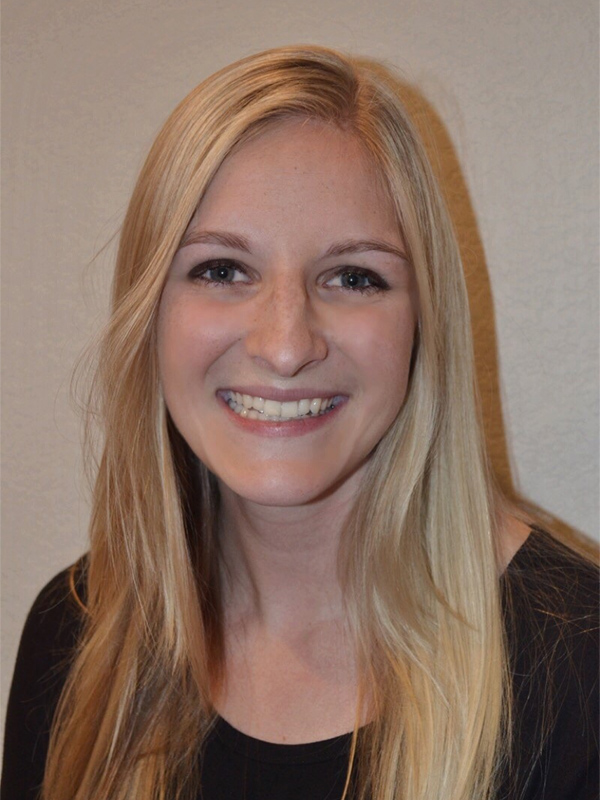
Jordan Grohskopf, RN, BSN, CCRN
Sky Ridge Medical Center, Lone Tree, Colorado
Jordan Grohskopf, RN, BSN, CCRN, at Sky Ridge Medical Center in Lone Tree, Colorado, witnessed just how important family can be. Jordan, who has been a nurse for less than three years, didn’t see her own family for three months at the onset of the pandemic. Some of her colleagues even chose to stay at hotels, made available at no charge through the support of the organization as an added precaution to protect their families from the virus.
Jordan explains that the presence — or absence — of families greatly impacted patients.
“I didn’t realize how much family plays a part in a patient’s healing journey,” she says.
Patients with rooms facing the parking lot could at least see their families through the windows, while care teams also helped connect families through video chats.
“Even with our intubated patients, you could see them smiling when they heard their loved ones’ voices,” she says.
Like Melissa, Jordan says colleagues at her facility cared for one another like family, too.
“Our doctors and nurses are what helped me cope with this time. We were a good team before COVID-19, but during COVID-19 we really leaned on each other physically and emotionally to get through our days,” Jordan says. “We created a flow to always be available to help each other, even when we had our own patients to care about.”
Nobody was taught how to be a nurse during a pandemic, but we are doing it. We have the ability to make a difference in someone’s life; with any luck, they will make a difference in ours, too.— Kathy Gallegos, ICU RN at Sky Ridge Medical Center, Lone Tree, Colo.
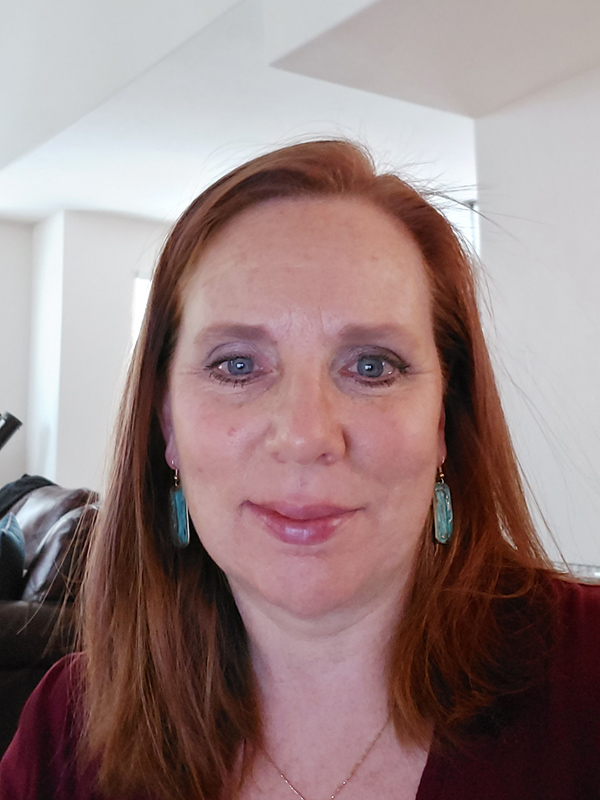
Kathy Gallegos, ICU RN
Sky Ridge Medical Center, Lone Tree, Colorado
Nursing Through a Pandemic
Kathy Gallegos, ICU RN at Sky Ridge Medical Center, describes her fourth year of nursing as one of growth and learning.
“I discovered so much about myself and my skills as an ICU nurse, about teamwork, being flexible with changes on protective equipment, and being creative with helping families stay in touch with their loved ones,” she says.
“Last year helped me to become a more confident person with my nursing career and as a mother and a wife. Being an ICU nurse is hard, but last year was extremely challenging, both physically and mentally.”
She recalls one patient in particular who moved her greatly. Although Kathy had arranged for the patient’s family to stand outside with signs to encourage her, the patient was especially despondent when they left.
“She was tired and just looked miserable. She just cried. I asked her if there was anything I could get for her. She responded, ‘I just want a hug.’ I hugged her tight and we cried.”
Kathy is keeping a journal so she can remember this challenging time and to leave a record of what the pandemic was like.
“I became a nurse because I wanted to care for others, and that’s what I have done to the best of my ability. It is important to be able to adapt to new and unfamiliar situations while finding ways to cope with physical and psychological fatigue,” she says. “Nobody was taught how to be a nurse during a pandemic, but we are doing it. We have the ability to make a difference in someone’s life; with any luck, they will make a difference in ours, too.”
